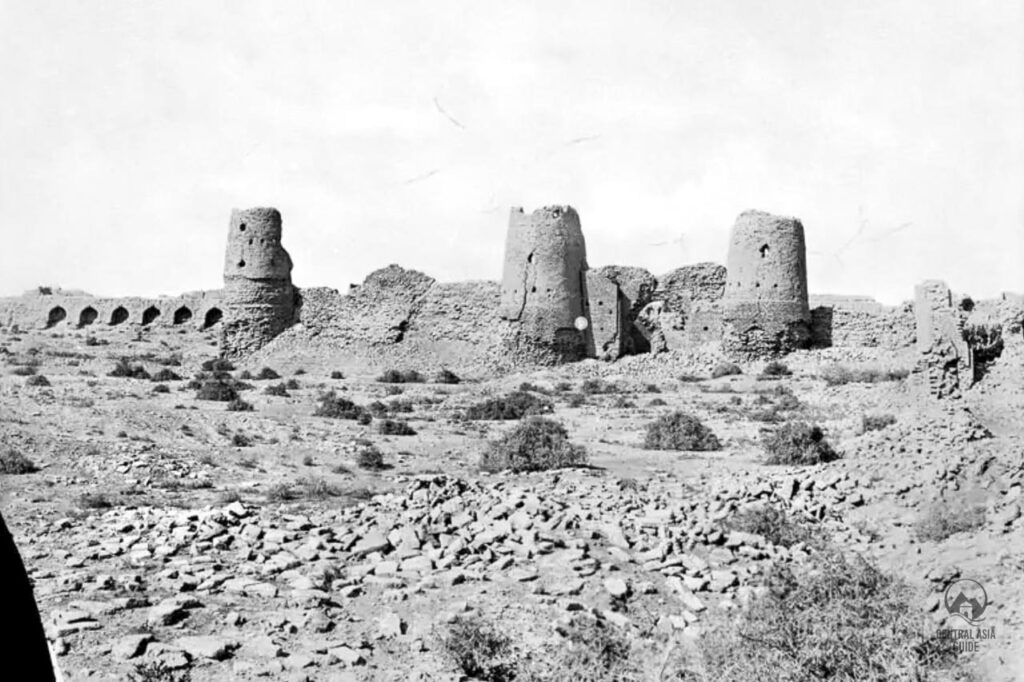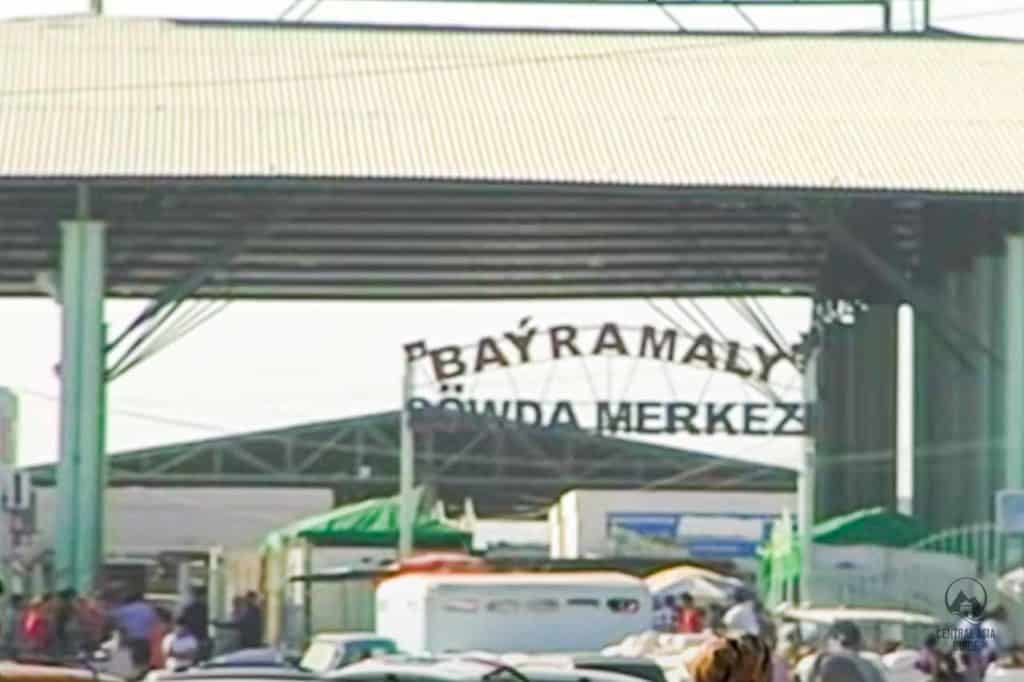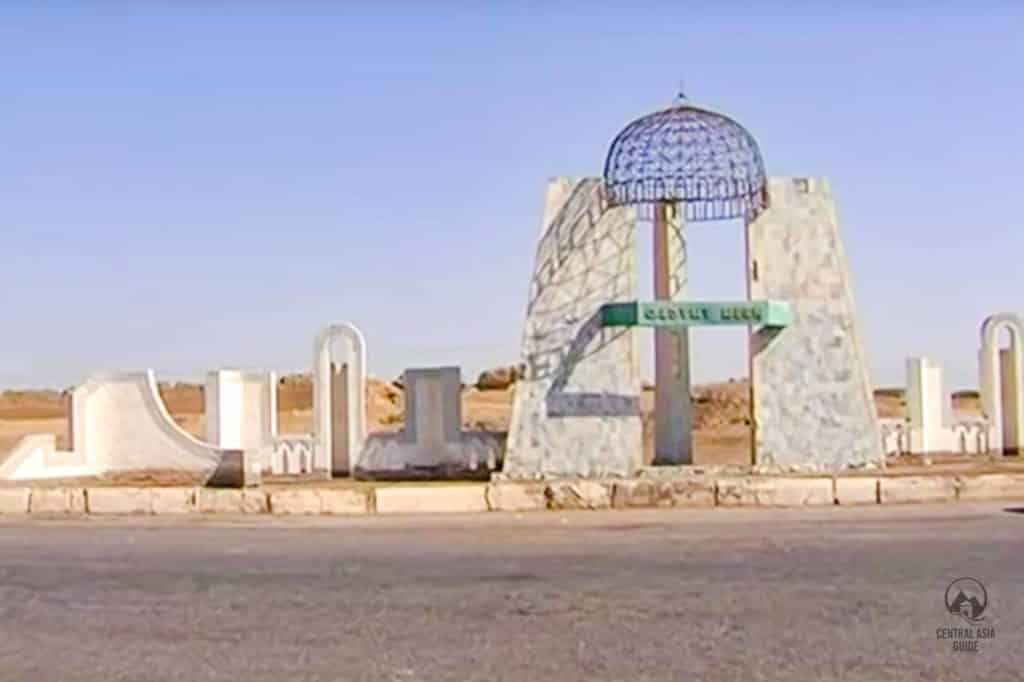Bayramaly
Bayramaly
Bayramaly is a small yet culturally rich city located in the southeastern part of Turkmenistan, in the Mary Province. Nestled in the Karakum Desert, Bayramaly has a unique blend of ancient history, spiritual significance, and modern-day relevance.
Though not as widely recognized as the capital Ashgabat or the ancient city of Merv nearby, Bayramaly has its own charm, making it a worthwhile destination for travelers interested in exploring Turkmenistan’s cultural and historical legacy. Its hot, dry climate is ideal for those seeking a desert experience, coupled with the rich historical and natural attractions in the region.
Today, Bayramaly is primarily known for its medicinal climate and sanatoriums. The hot, dry desert air and mineral-rich mud have made the city a popular spot for those seeking natural healing treatments. Visitors come to visit the sanatoriums’ therapeutic waters and mineral baths, believed to relieve respiratory, skin, and joint ailments.
Bayramaly may be a small city, but its proximity to some of Turkmenistan’s most important historical and cultural sites makes it an intriguing destination. From the ancient ruins of Merv to the soothing sanatoriums and the expansive Karakum Desert, Bayramaly offers visitors a unique blend of history, health, and natural beauty. For those exploring Turkmenistan, a stop in Bayramaly provides a deep and rewarding insight into the rich legacy of the region and its role in the history of Central Asia.

History of Bayram Aly
Bayramaly was historically connected to the ancient city of Merv (modern-day Mary), one of the oldest and most important cities of the Silk Road. Merv’s ruins, now a UNESCO World Heritage Site, are located just 20 kilometers from Bayramaly and are one of the major reasons visitors make their way to this part of Turkmenistan.
The city was named after the 13th-century figure Bayram Aly, a local hero and spiritual figure who played an important role in the cultural development of the region. Throughout history, Bayramaly and the surrounding region have been important for trade and agriculture, benefiting from their location on ancient trade routes and near the Murghab River. There are also mostly unexcavated fortress ruins just near the city center of Bayramaly.
Bayramaly Cultural Highlights
The culture of Bayramaly, much like the rest of Turkmenistan, is deeply influenced by the country’s nomadic heritage, Islamic traditions, and the impact of the Silk Road. Turkmen carpets, known for their rich colors and intricate designs, are an essential part of the local identity. Many visitors to Bayramaly purchase carpets as souvenirs, appreciating the craftsmanship that has been passed down for generations.
The people of Bayramaly are known for their warm hospitality, and visitors are often welcomed with traditional tea ceremonies, which play an important role in Turkmen culture. During these ceremonies, tea is served alongside local snacks like nuts and dried fruits, creating an inviting atmosphere for social interaction.
Bayramaly Sights
While Bayramaly itself is often overshadowed by its proximity to Merv, the town offers a few interesting attractions. One such sight is the local bazaar, where visitors can experience the local culture and purchase traditional handicrafts. Bayramaly also boasts architectural remnants from its Tsarist past, including single-story buildings and a sanatorium that was once a royal residence. The Russian Orthodox Church in town, with its decorative arches and medallions depicting saints, is a reminder of the town’s historical connections to Imperial Russia.
For those visiting Bayramaly, it serves as an excellent gateway to explore the ruins of Merv, a UNESCO World Heritage Site. Merv is one of the oldest and most significant cities along the Silk Road, offering historical sites like the Tomb of Sultan Sanjar and the remains of ancient fortresses such as Erk Kala and Gyaur Kala, which date back to the 6th century BC. These ancient ruins are spread over 100 square kilometers, giving visitors a glimpse into different epochs of history
Bayramaly Ortodox Church
The Orthodox Church of St. Alexis in Bayramaly, Turkmenistan, stands as a significant historical landmark. Built between 1910 and 1914, the church reflects the town’s tsarist legacy, having been commissioned by Tsar Nicholas II. Its square layout and robust, simple architecture feature two main entrances with arched wooden doors. Inside, the church is adorned with interconnected arches and medallions of saints. A notable feature is its central tower, once topped with a dome, now replaced with a fluted iron roof.
Bayramali Central Bazaar
The Bayramaly Central Bazaar is a lively and bustling market located on the northern side of the town, not far from the ancient site of Merv. Known for its traditional Turkmen goods, the bazaar offers a wide variety of products, including fresh produce, handicrafts, carpets, and textiles. Visitors can enjoy the vibrant atmosphere, browse the stalls filled with local delicacies, and immerse themselves in the everyday life of the city. It’s a perfect spot for both cultural exploration and souvenir shopping.


Bayramaly cottonseed factory museum
The Bayramaly Cottonseed Factory Museum offers a unique glimpse into Turkmenistan’s Soviet industrial history. Established in 1931 near the factory that began in 1903, the museum celebrates the town’s primary industry—cottonseed oil production. It houses artifacts like early factory equipment, historical documents, and artwork depicting the factory’s workforce. Visitors can see memorabilia related to the factory’s fire brigade, sporting events, and even a desk used by the first factory director. This museum showcases Bayramaly’s rich industrial heritage and its role in the region’s economy.
Bayramaly Sanatorium
Bayramaly’s status as a health resort is another attraction for visitors. There are several sanatoriums in the city and its surroundings, offering treatments based on the region’s dry climate and therapeutic muds. The Bayramaly Sanatorium, in particular, is one of the most famous in Turkmenistan. People come here for treatments that are believed to alleviate conditions like asthma, arthritis, and other chronic ailments.
The experience of staying in a sanatorium is both unique and deeply relaxing, blending traditional Turkmen hospitality with the natural healing properties of the desert environment.
Travel to Baymaraly
The closest major city to Bayramaly is Mary, which has an airport that connects to Ashgabat and other cities in Turkmenistan. From Mary, Bayramaly is easily accessible by road, either by taxi or bus.
Sights near Bayramaly
Page updated 2.11.2024